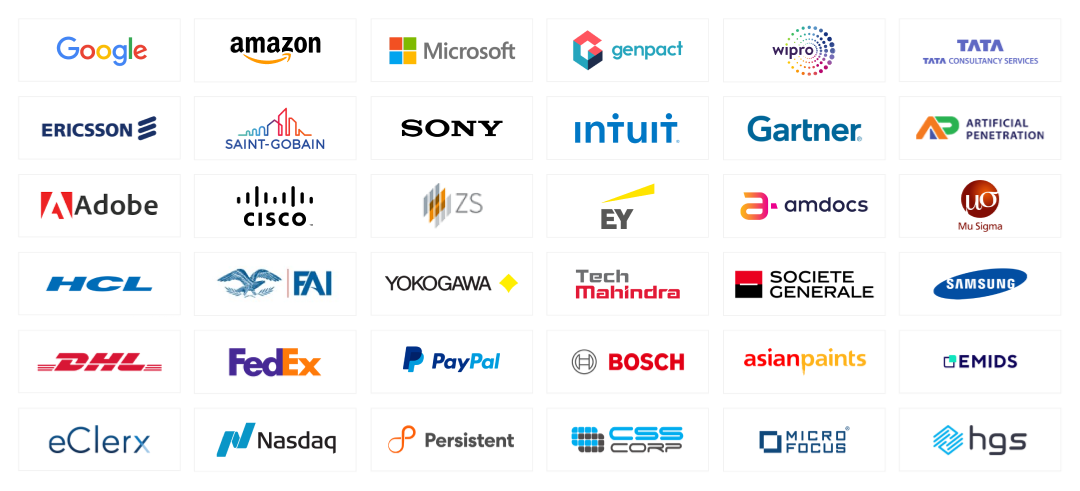Empower Your Career with In-Depth Cloud Computing Knowledge
Empower Your Career with In-Depth Cloud Computing Knowledge
Welcome to the forefront of digital transformation! Discover the limitless possibilities of cloud computing and embark on a journey towards becoming a cloud computing expert.
Key Benefits of the Program

High-Demand Skills

Practical Hands-On Learning

Security Expertise

Comprehensive Curriculum

Career Advancement

Expert Instructors

Networking Opportunities

Certification
Cloud Computing Program Level

Foundation
Beginners
Benefits
- Duration: 4-6 weeks, 45 hr
- Introduction to cloud services and concepts
- Multi-tier application with basic security
- Entry-level positions
- Preparation for Next Levels
- Basic Projects
- Basic Certification
$999 (One Time)

Intermediate
Professionals
Benefits
- Duration: 8-12 weeks, 85 hr
- Foundation Recap
- Intermediate topics in, networking, data,DevOps & more
- Exploration of advanced cloud topics
- Basic + Some Advance Tools Coverd
- Mid-level positions
- Intermediate Certification & Community Access
$1499 (One Time)

Expert
Advance
Benefits
- Duration: 16-18 weeks, 135 hr
- Intermediate Recap
- Advanced architectural patterns, security, compliance, migration, DevOps
- Advanced cloud solution with security and optimization
- Advanced cloud concepts and emerging trends
- Senior-level positions
- Expert Certification, Mentorship
$1999 (One Time)
Course Benefits

Hands-On Learning
Cloud computing courses focus on practical exercises, allowing students to work directly with cloud platforms, enhancing their technical skills.

Real-World Applications
Students learn to apply cloud solutions to real-world scenarios, preparing them for industry challenges and practical problem-solving

Efficiency and Scalability
Understanding cloud technologies enables businesses to optimize resources, ensuring efficient operations and easy scalability as demands change

Cost-Effectiveness
Cloud computing courses teach cost-effective methods of managing IT infrastructure, reducing expenses associated with traditional hardware setups.

Security Measures
Students learn about cloud security protocols, ensuring they understand how to protect data in cloud environments, a critical skill in today’s digital landscape.

Collaboration Tools
Cloud platforms offer collaboration features; students learn to leverage these tools, enhancing teamwork and productivity in professional settings.

Innovation and Agility
Cloud computing fosters innovation by providing tools for rapid prototyping and experimentation, allowing businesses to adapt quickly to market demands.

Global Accessibility
Cloud-based solutions facilitate global accessibility to data and applications, ensuring businesses can operate seamlessly across borders, a vital aspect of modern enterprises.
About Course
Our Cloud Computing Course offers you the unique opportunity to advance your career in a field with exceptional growth and demand. This education equips you with the skills and knowledge necessary to pursue a wide range of high-paying and prestigious roles in the technology sector. Whether you aspire to become a cloud architect, cloud engineer, or cloud solutions specialist, this course opens doors to a world of career possibilities.

Tools Covered










Placement Target Companies

Frequently Asked Questions
Cloud computing is a technology that allows individuals and organizations to access and use computing resources (such as servers, storage, databases, networking, software, and more) over the internet, often referred to as “the cloud.” It offers scalability, flexibility, and cost-efficiency.
Some key benefits include cost savings, scalability, flexibility, reliability, accessibility, and the ability to focus on core business activities rather than IT infrastructure management.
Cloud computing offers three primary service models: Infrastructure as a Service (IaaS), Platform as a Service (PaaS), and Software as a Service (SaaS). IaaS provides virtualized computing resources, PaaS provides a platform for developing and deploying applications, and SaaS delivers software applications via the internet.
Major cloud providers include Amazon Web Services (AWS), Microsoft Azure, Google Cloud Platform (GCP), IBM Cloud, and Oracle Cloud. Each offers a range of cloud services and solutions.
Cloud providers invest heavily in security measures, and many offer robust security features. However, the security of cloud services also depends on how they are configured and used by customers. Security is a shared responsibility between the cloud provider and the customer.
Cloud computing professionals need skills in areas like cloud architecture, cloud security, DevOps, automation, and knowledge of specific cloud platforms. Certifications from cloud providers can also be valuable for career advancement.
Public clouds are owned and operated by third-party cloud service providers and are accessible over the internet. Private clouds are dedicated to a single organization and may be hosted on-premises or by a third party. Hybrid clouds combine both public and private cloud resources to provide greater flexibility.
Cloud computing can enhance business agility, reduce costs, improve collaboration, and enable digital transformation. It allows businesses to scale resources as needed, making it easier to adapt to changing market conditions.
Yes, many existing applications can be migrated to the cloud. The process may involve rehosting, refactoring, or rebuilding the application to make it cloud-compatible.
Cloud costs can vary based on usage, service type, and provider. It’s essential to monitor and optimize resource usage to control costs effectively. Many cloud providers offer cost management tools to help users track and manage their expenses.
